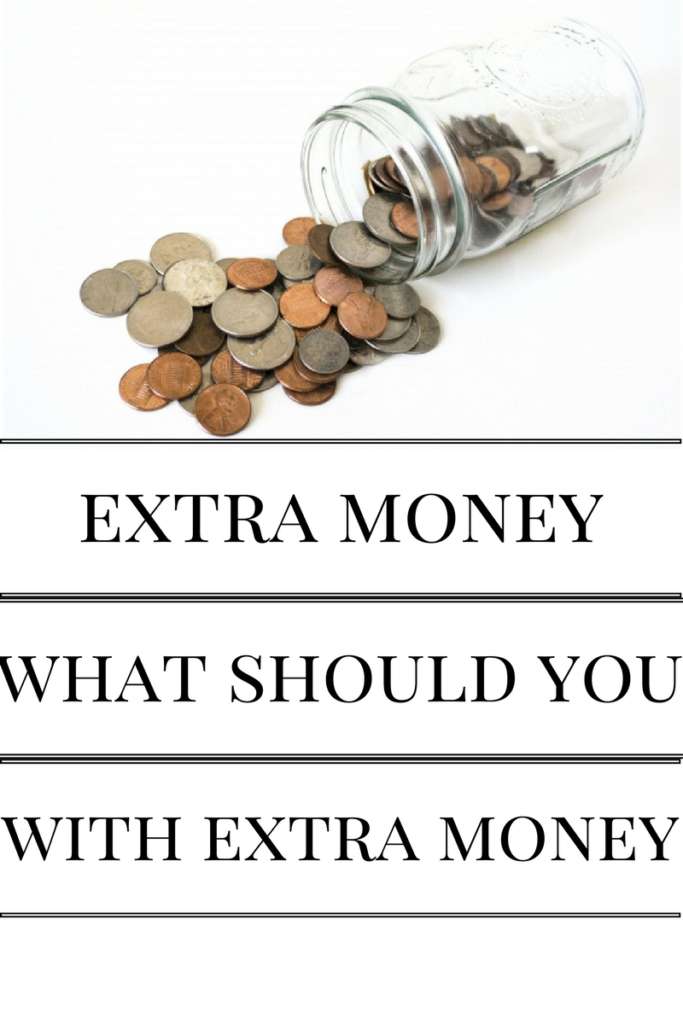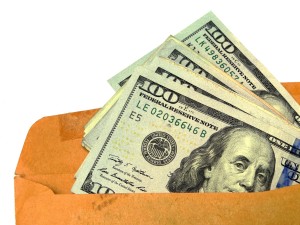If all conditions were perfect, before you received your regularly scheduled income (usually in the form of a paycheck), your budget would tell you how every penny was going be used and your allocations would be “right on the money”. That concept is good in theory, but rarely are things perfect. You know there are a lot of variables in any aspect of life. A good budget serves as a guide for controlling those that are financial challenges and is likely to yield some extra-money in the process.
-

We all need to know what to do with extra money. Because we receive extra money sometimes.
Extra-Money
A practice I’ve found helpful in designing a well-functioning budget is to plan for costs (and expenditures) to be a little on the high side of the current norm. There are always fluctuations in the price of fuel, produce, and anything you buy. Consumption of products and services can vary, too. For example, my current budget allows $25.00 a week for gas. Given fuel prices at their current level, I know I won’t need more than $25.00 worth of gas in my tank for this week’s travels. Actually, I’m sure I’ll use less.
Where I live the price of gas has been fluctuating as much as $0.40 a gallon from day to day. As I’m writing this, the price per gallon is $2.55. That’s the recent low. It could be up to $2.70 tomorrow (and yes, there is a chance it will go even lower, but…). I saw a price of $2.85 a couple of days ago, and it did hit $2.95 recently; the price is jumping around and sometimes the change is extreme. Anyway, I get 14 miles to the gallon, and I drive about 100 miles a week—to and from work, church, shopping, etc. I’ll need a little over 7 gallons of gas to do this driving. Earlier today, I went ahead and put 7 gallons of gas in my tank. This means I’ve spent about $18.00 on fuel this week; I doubt I’ll need more. If the price of gas gets back to $2.95 a gallon, 7 gallons will cost about $21.00. That’s a difference of $3.00, which means that this week I have (roughly) $7.00 of extra-money left in my fuel allotment fund. I need to consider what to do with it. Another example is my weekly grocery fund: I allow myself $X.XX weekly to buy groceries. On some weeks I get by with less because of coupons that I can use, or I find something on sale. The question is what to do with the extra-money?
Neither of the above scenarios yields a lot of money, but often there is something leftover, some extra money. When you have a surplus of money, budget it. Even if it’s just a couple of dollars now and again, over time it can be a significant amount. Bits of extra-money make a great case for the saying “mind your pennies and your dollars will take care of themselves”. So… What do you do with the extra-money?
The correct answer is going to be custom made: Do what is going to serve you best. Treat it like a mini paycheck; what fund needs money?
Would it be best to add the extra-money to your emergency account? The experts recommend 3-6 month of living expenses, but truthfully, it’s difficult to ever say you’re overfunded for emergencies. Applying the extra-money against your consumer debt would also be another good use of it. If you are debt free and feel good about funds available in an emergency consider putting this money towards an upcoming expense—a car, a vacation, home repairs, etc. I know someone who (sometimes) puts his extra-money in a fund to cover unexpected price increases until he can revise his budget. He uses it as a short-term emergency fund. The money doesn’t have to be used the same way every time, and it can be divvied up; as you pursue a frugal lifestyle, you can be flexible. Whatever you do, don’t waste this money.
Conclusion
In this article I discussed the weakness of budgets based on our inability to know how much the price of some goods and services will vary. No matter how well you are at planning, your budget won’t be100% accurate all of the time. Occasionally, there will be a little extra money. What should be done with it? My opinion is that it should budgeted—just like a paycheck. Will the funds do you the most good in your emergency account, paid against consumer debt, or somewhere else? Wherever that is, that is where you should put your extra-money.

